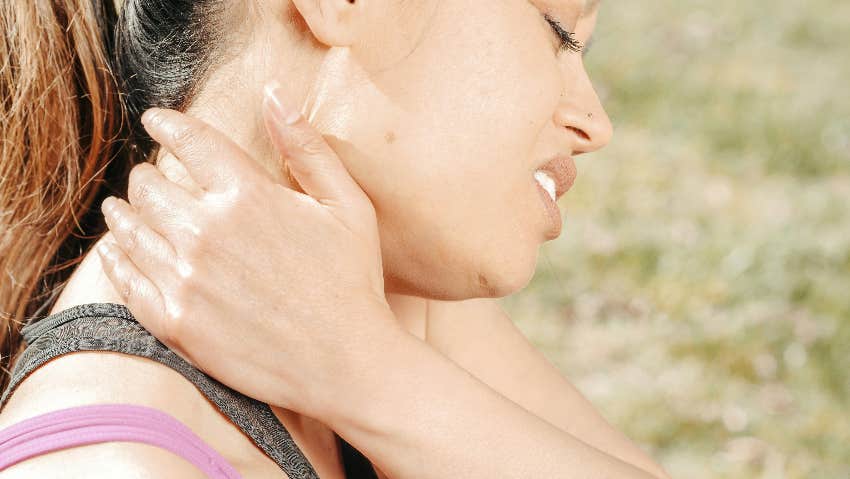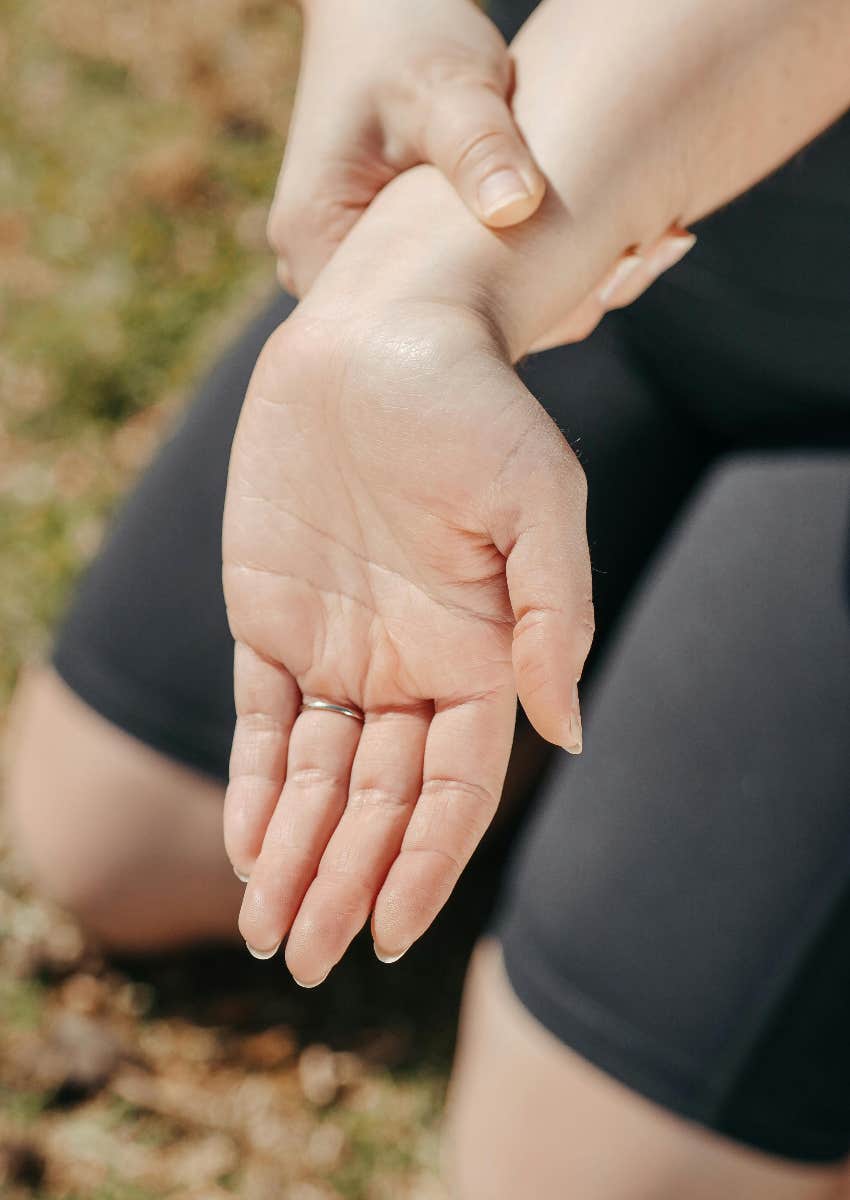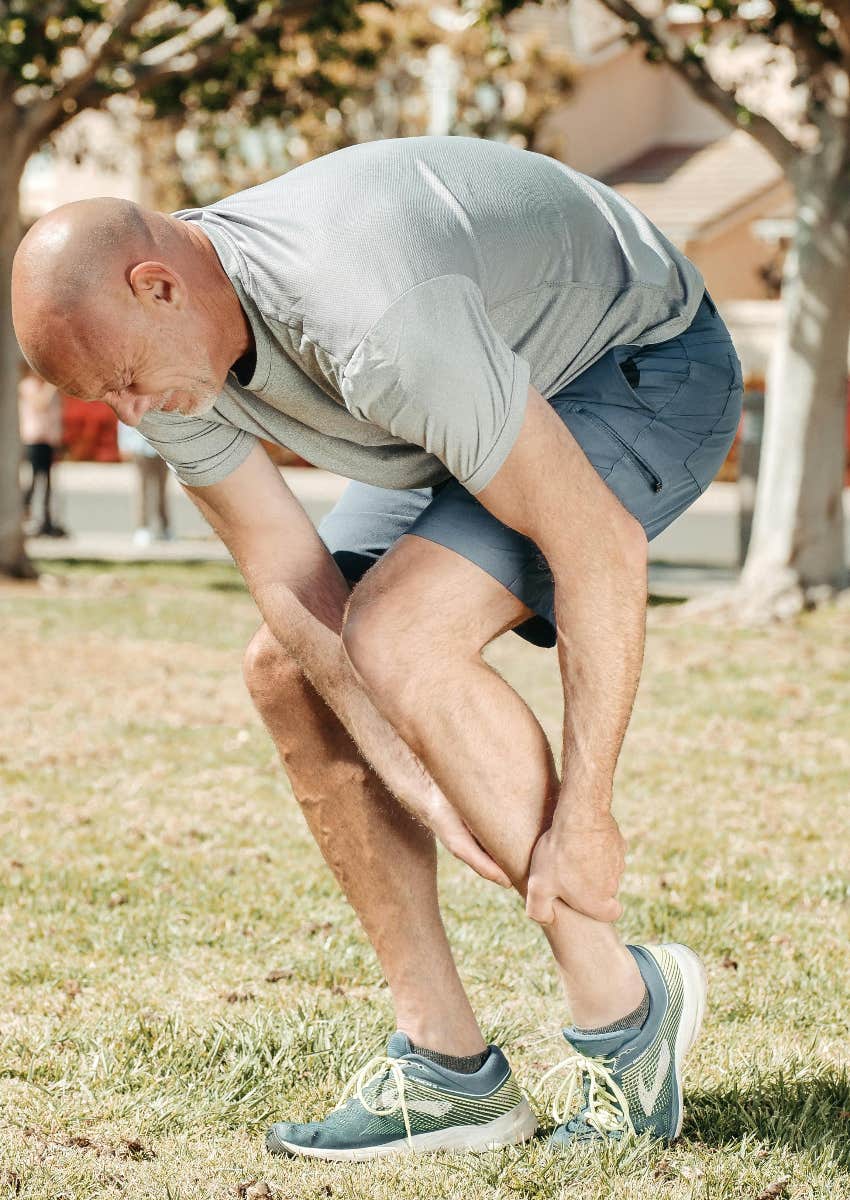9 Types Of Pain That Are Directly Linked To How A Person Handles Their Emotions
Your body is trying to tell you something is amiss.
 Vitaliy Izonin | Canva
Vitaliy Izonin | Canva Did you know that every single thought and feeling that you have in your mind manifests itself physically in your body in some way, shape or form? This is why the body releases various chemicals based on our mood or how we're feeling at the time — whether it be feel-good chemicals from being happy or stress hormones from being anxious.
When it comes to positive versus negative thoughts, the big question is whether or not experiences and events that happen in life are intrinsically negative or positive. If possible, it can be helpful to try to reframe the experience to recognize the unkindness or negativity of a person's choice, or how you felt at the moment. You can't pretend they didn't happen, after all.
But you can pay attention to your body, find where you are storing your stress and emotions over the experience, and cope with it directly so you can move on and have an overall positive experience.
Here are nine types of pain that are directly linked to how a person handles their emotions:
1. Neck
Pain in the neck often results from refusing to see other sides of the question, stubbornness, and inflexibility.
2. Shoulders
 Kindel Media / Pexels
Kindel Media / Pexels
Pain or soreness in the shoulders represents our ability to carry our experiences in our life joyously or that we make life a burden by our attitude. Medical Intuitive Archanaa Shyam explains that tension in your neck is "a natural physical response to emotional stress." Her advice comes from personal experience, which led her to conclude that her neck pain showed she was "essentially out of alignment with her purpose and her intuition."
3. Spine
Spinal pain represents the support of life. The different types of pain are divided into three sections:
Upper: Lack of emotional support; feeling unloved; holding back love.
Middle: Guilt; stuck in the past; get off my back.
Lower: Fear of money; lack of financial support.
4. Elbows
Elbow pain represents changing directions and accepting new experiences. Are you ready for it?
5. Wrists
 Kindel Media / Pexels
Kindel Media / Pexels
Wrist pain represents challenges with movement and ease in your life. Spiritual and life coach Polly Wirum correlates how our wrists allow us to "show gratitude with prayer hands." Wirum recommends checking in and evaluating "your gratitude and ability to receive in your relationships."
6. Hips
Fear of going forward in major decisions and nothing to move forward to is often represented by hip pain.
7. Knees
Knee pain represents stubborn pride and ego; inability to bend; fear; inflexibility; and a refusal to give in.
8. Ankles
 Kindel Media / Pexels
Kindel Media / Pexels
Ankle pain represents inflexibility and guilt; the ability to receive pleasure. One 2022 study found that people who had ankle pain were more likely to have a negative personality.
9. Bunions
Bunions represent a lack of joy in meeting experiences in life. While the direct influence that the mind has on the body is not always readily apparent, the link between these two vessels is sacred.
When we have an overwhelmingly positive mindset, attitude, and outlook on life, we're better able to resolve internal problems, which in turn helps us create a happy, healthy life.
The same goes for negativity. If we're constantly having self-destructive thoughts or choose to dwell in negativity, we avoid resolving internal issues and subsequently end up in an unhealthy lifestyle. Every emotion and experience we have gets stored in the cell memory of our bodies.
This is why any unresolved traumas or wounds will continue popping up in different areas of your life until you've fully healed them. If you've been experiencing a lot of tightness or pain throughout your body, and it's not due to physical activity, listen to what your body is trying to tell you.
These could be signs that your body wants you to find inner peace and resolve any painful issues that you've avoided in the past. The best thing you can do to stay aligned with your higher being, as well as prevent the onset of rumination, is to be aware of how you perceive the experiences of your life.
Instead of impulsively jumping from one emotion to the next, take a step back and see if there is any possible way you can learn from the experience. Train yourself to observe, rather than to react. You are in complete control, even when you don't think you are.
Higher Perspective seeks to bring together like-minded individuals focused on personal growth and expanding their consciousness. We can be better to our planet, better to our brothers and sisters, and better to ourselves.

